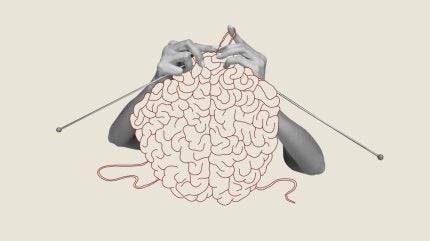
AbbVie has joined forces with US-based Gilgamesh Pharmaceuticals to target therapies for psychiatric disorders.
The collaboration, which includes an option-to-license agreement, will see AbbVie pay Gilgamesh $65m upfront. The psychedelic specialist is also in line to receive up to $1.95bn in aggregate option fees and milestones, as well as royalties.

Discover B2B Marketing That Performs
Combine business intelligence and editorial excellence to reach engaged professionals across 36 leading media platforms.
The two companies will team up in the research and development phases of potential therapeutics for psychiatric disorders. AbbVie will take on development and commercialisation duties if it chooses to option a programme.
Founded in 2019, Gilgamesh is developing neuroplastogens – agents that induce rapid and long-lasting neuroplasticity. These compounds could minimise the side effects seen with existing psychedelic compounds whilst still exerting clinical benefit, as per the company.
Gilgamesh currently boasts two Phase II clinical assets, notably GM-1020 and GM-2505, which are being evaluated for the treatment of major depressive disorder. GM-1020 is an oral NMDA receptor antagonist while GM-2505 is an agonist of the 5-HT2A (serotonin) receptor.
The pharma company is also working on an investigational new drug (IND) application for an oral non-hallucinogenic neuroplastogen named GM-5022.

US Tariffs are shifting - will you react or anticipate?
Don’t let policy changes catch you off guard. Stay proactive with real-time data and expert analysis.
By GlobalDataAbbVie’s senior vice president and global head of discovery research Jonathon Sedgwick said: “Significant unmet need remains for people living with psychiatric disorders and we know that to innovate in this field, we need to pursue novel technologies and approaches.”
The number of psychedelics being used in clinical trials to treat psychiatric disorders is growing as investment in the space ramps up. However, the area is still in its infancy and, while some treatments have shown promising efficacy in addressing mental health disorders, many clinical ventures have been ineffective. Chief among the issues with many of these first-generation drugs can be unwanted psychoactive side effects such as hallucinations, says AbbVie.
There are currently no FDA-approved ‘classic psychedelics’, though the space is gearing up for a landmark review in June this year when Lykos Therapeutics’s MDMA-mediated therapy goes under the FDA examination lamp. The biotech’s upcoming meeting with the FDA’s Psychopharmacologic Drugs Advisory Committee (AdCom) will mark the first time FDA experts formally debate a psychedelic treatment.
The speed of the market’s growth could hinge largely on the outcome of the AdCom meeting, though public perception towards psychedelics – which is still mixed – could yet prove a major obstacle to the treatment’s widespread implementation.
Update: The headline and opening paragraph in this article have been updated to correctly reflect the nature of the deal between AbbVie and Gilgamesh. Additionally, the fourth paragraph detailing the development of psychedelics has been deleted.




